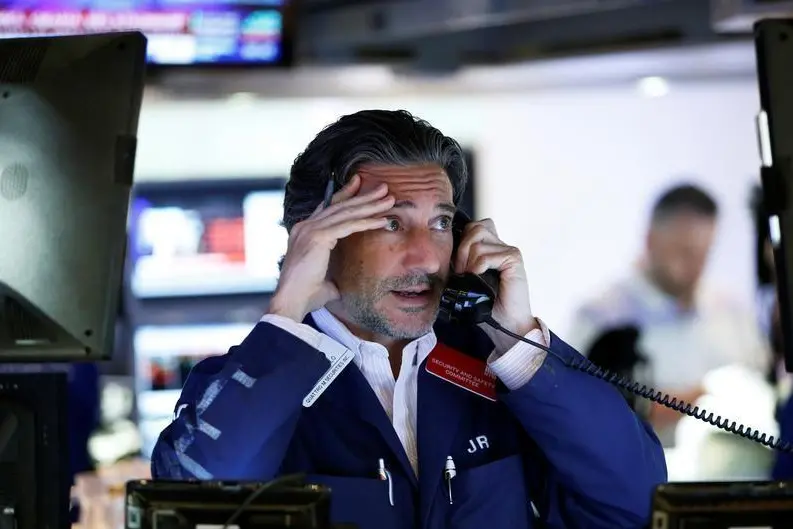PHOTO
Saturday, Aug 13, 2016
Dubai: Fund managers like UBS, and Morgan Stanley increasingly prefer US equities as well as emerging markets.
The S&P 500 index has been on a record breaking spree, and has rallied 19 per cent since reaching a 22-month low in February, and this is not making asset managers less optimistic on equities in the world’s largest economy. UBS is overweight on US equities as growth returns amid expectations that the second quarter earnings will show smaller contraction.
“US economic growth is underpinned by strong consumer fundamentals. Business sentiment improved recently pointing at stabilising manufacturing activity,” Markus Irngartinger and Bert Jansen from the UBS Chief Investment Office said. UBS expects a smaller contraction in earnings compared to the first quarter, with expectations that the second half would be better even as headwinds provided by falling energy prices and strong dollar fade.
Even Morgan Stanley prefers to remain in US equities.
“This is owing to quality, size, liquidity, stability and the potential for modest earnings growth in our base case, with year over-year revenue growth now poised to grow after contracting the previous few quarters,” Morgan Stanley said in a strategy note. Morgan Stanley has raised its 12-month forecast for S&P 500 from 2,050 to 2,200.
In other developed markets, fund managers maintain a neutral stance on UK and Eurozone equities.
“Business sentiment points at a continued robust expansion in the second half of 2016. The UK referendum’s negative impact on economic growth should be limited though lower interest rates after the UK referendum keep pressuring banks’ profitability,” UBS’ Irngartinger and Jansen said.
Morgan Stanley is also neutral on UK equities. The pound, which weakened below the 1.3 per dollar mark, may provide earning support to companies in the country, which generate 70 per cent of the revenues from overseas.
Emerging markets
Fund managers also maintain their overweight position on emerging markets.
“The emerging markets seem to be a relatively brighter spot, where we advise investors to add to exposure,” Gary Dugan, chief investment officer at Emirates NBD said in a weekly update.
The MSCI Emerging Markets Index has been on a gaining streak, after hitting its highest level since July 2015. The index has gained 4 per cent in the previous week.
And still the markets offer value and are considered cheap at current levels.
“Emerging market equities are cheaper than developed market according to various metrics and emerging market bonds offer a substantial yield pickup; both should be further boosted by the plentiful global liquidity and the outlook for a milder tightening cycle in the US,” Dugan said.
The implementation of the Goods and Services Tax is also considered a plus point for an emerging market like India, which is the fastest growing economy.
Inflation
The GST is expected to bring down taxes to 18-20 per cent from the earlier 25 per cent in various forms, and is expected to boost demand and lower inflation.
The tax is due to be implemented in April 2017.
“We continue to favour Indian equities, and are overweight among global equities. In India, we have a combination of a pretty good macro story and the story is improving. Inflation has ticked a little bit in the last few months, but it is meaningfully lower than it was a few years ago. The central bank governor along with Modi bestowed the credibility to macroeconomic policy framework,” Maya Bhandari, Director, Multi Asset Allocation, Columbia Threadneedle Investments told Gulf News.
The Sensex index has risen 21 per cent from a low in February as capital flows to India accelerated amid a wave of global policy easing. This has attracted overseas flows. Foreigners have bought a net $5.3 billion (Dh19.4 billion) of local shares this year, the most after Taiwan and South Korea. They’ve been net buyers of local shares every month since March.
By Siddesh Suresh Mayenkar Senior Reporter
Gulf News 2016. All rights reserved.





















